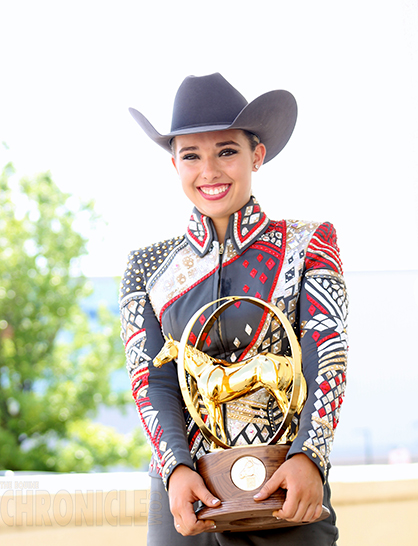Biosecurity Tips For AQHA Youth World Show
Biosecurity is a top priority of show personnel when planning and hosting an AQHA championship show. With recent announcements of positive vesicular stomatitis (VS) cases, please be aware and take precautions when traveling with animals that may comingle with other animals at events over the next several months.
Visit the Equine Disease Communication Center for updates on current disease outbreaks at www.equinediseasecc.org/alerts/outbreaks.
The State of Oklahoma is requiring horses living in areas with positive VS cases to have a health certificate within 5 days of when you are traveling. Built Ford Tough AQHYA World Championship Show exhibitors who are from an area that has a positive VS case are required to have a health certificate within 5 days of when you leave, instead of the 30 day requirement. Additional resources and information such as state entry requirements are available at www.equinediseasecc.org.
For more information on health requirements for the AQHA championship shows, visit the show resources page for the AQHA championship show at which you plan to compete.
For more information on vesicular stomatitis and other diseases, visit the AAEP website.
The welfare of the horse is the Association’s No. 1 priority. Exhibitors are still responsible for monitoring their horses’ behavior and vital signs to be vigilant of illness that could occur. Early diagnosis prevents further transmission of diseases and increases the chances of a fast and full recovery for the horse.
Traveling to competitions can compromise a horse’s immune system by exposing it to new germs, which increases the risk of contracting infectious disease. Vaccinations and other health precautions help prevent the transmission of disease.
There are other precautions outside of vaccination that help horse owners protect their equine athletes on the road and during competition. Sanitizing stalls, tack and equipment before and after each use, as well as limiting direct contact with horses and communal spaces, such as pastures, also decrease the risk of disease transmission.
Check out this biosecurity checklist from AQHA Corporate Partner Zoetis for more information on how to protect your horse.
Follow these tips from Zoetis to help prevent disease outbreaks at home and on the road.
For more information on AQHA championship shows, visit www.aqha.com/championship-shows.
AQHA News and information is a service of the American Quarter Horse Association. For more news and information, follow @AQHAnews on Twitter and visit www.aqha.com/news.











